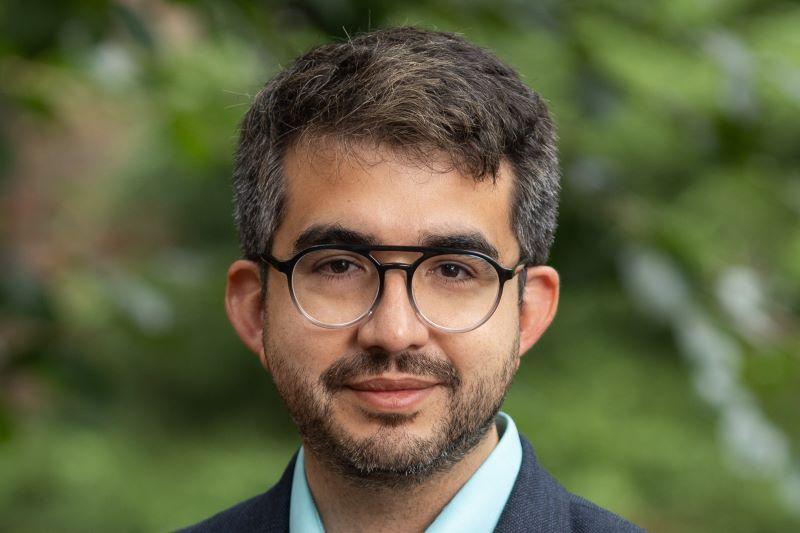-

Hear from Professor Monica Toft
Learn how Professor Monica Toft is shaping the study of global affairs and diplomacy at Fletcher.
Hear from Prof. Toft -

Explore Fletcher academics in action
Fletcher Features offers insights, innovation, stories and expertise by scholars.
Get global insights -
Get application tips right from the source
Learn tips, tricks, and behind-the-scenes insights on applying to Fletcher from our admissions counselors.
Hear from Admissions -

Research that the world is talking about
Stay up to date on the latest research, innovation, and thought leadership from our newsroom.
Stay informed -
Meet Fletcherites and their stories
Get to know our vibrant community through news stories highlighting faculty, students, and alumni.
Meet Fletcherites -

Forge your future after Fletcher
Watch to see how Fletcher prepares global thinkers for success across industries.
See the impact -

Global insights and expertise, on demand.
Need a global affairs expert for a timely and insightful take? Fletcher faculty are available for media inquiries.
Get in Touch
An Eye for Different Perspectives
Sebastián Mantilla Blanco studies investment treaties with a finely focused lens

Sebastián Mantilla Blanco wants to enrich the narratives around international economic law. He observes that debates around international investment law quite often overrepresent the interests of a few states at the expense of those of other large parts of the world.
Born in Germany and raised in Colombia, Mantilla Blanco works across languages and perspectives.
“I grew up and obtained my law degree in Bogota, my master's degree and doctorate at the University of Bonn, and was then a postdoctoral researcher in Germany and the United States”, said Mantilla Blanco. “This allows me to draw from various perspectives, including those of the European Union and Latin America, in my academic work.”
A Hardly Moot Introduction to International Economic Law
Mantilla Blanco did not initially consider law as a career path. However, the discipline bridged his attraction to the humanities with his penchant for debate. As he dove into his law studies, his involvement with international moot courts—one in arbitration and the other on the law of the World Trade Organization (WTO)—spurred him to pursue a career in international economic law.
“Through that moot court experience, I became more interested in this area of the law,” he said. “I saw that you could actually see perspectives from all over the world flowing into specific, technical debates.”
His experience with the moot courts proved professionally auspicious. He was hired by a law firm where he worked with a top Latin American practitioner in international arbitration, a career move that ultimately led him to where he is today.
Implications of Treaties for Policymaking
Mantilla Blanco explores the interplay between domestic decision making and international economic law. He is interested in the mechanisms and legal tools states use to reshape policy and regain margins of discretion.
“In brief, what I'm studying is a series of treaties that govern international economic relations: free trade agreements, investment treaties, the WTO Agreement,” he said. “These treaties set limits, boundaries, and frameworks for domestic decision making. When a new government is elected, it still has to abide by those rules established by treaties signed by previous administrations. In some cases, governments need to find strategies to pursue their new policies within these rules. Some states will try to reshape the system to pursue new goals.”
His most recent research project focuses on the termination of treaties. Mantilla Blanco wants to understand how states navigate tensions between treaty constraints and new policies.
“Let’s take, for example, a bilateral investment treaty that grants investors some general guarantees and provides them with the possibility of asserting their rights before international tribunals,” he said. “The states that agreed to that treaty, say three decades ago, may come to realize that these treaties no longer serve their interests, and decide to withdraw from the treaty by mutual agreement. Does an investor, as a third-party beneficiary of this treaty, have any protection under international law?”
Students will be grappling with such questions in his international investment law course this fall. He plans to engage students in conversations about contentious issues in this dynamic area of the law.
Central to Mantilla Blanco’s philosophy today is the same perspective that has guided him throughout his career—an emphasis on nuance and openness to different points of view. “I want students to recognize the politics behind the technical and seemingly objective language of treaties in international economic law.”
Read more about Fletcher’s LLM program.

